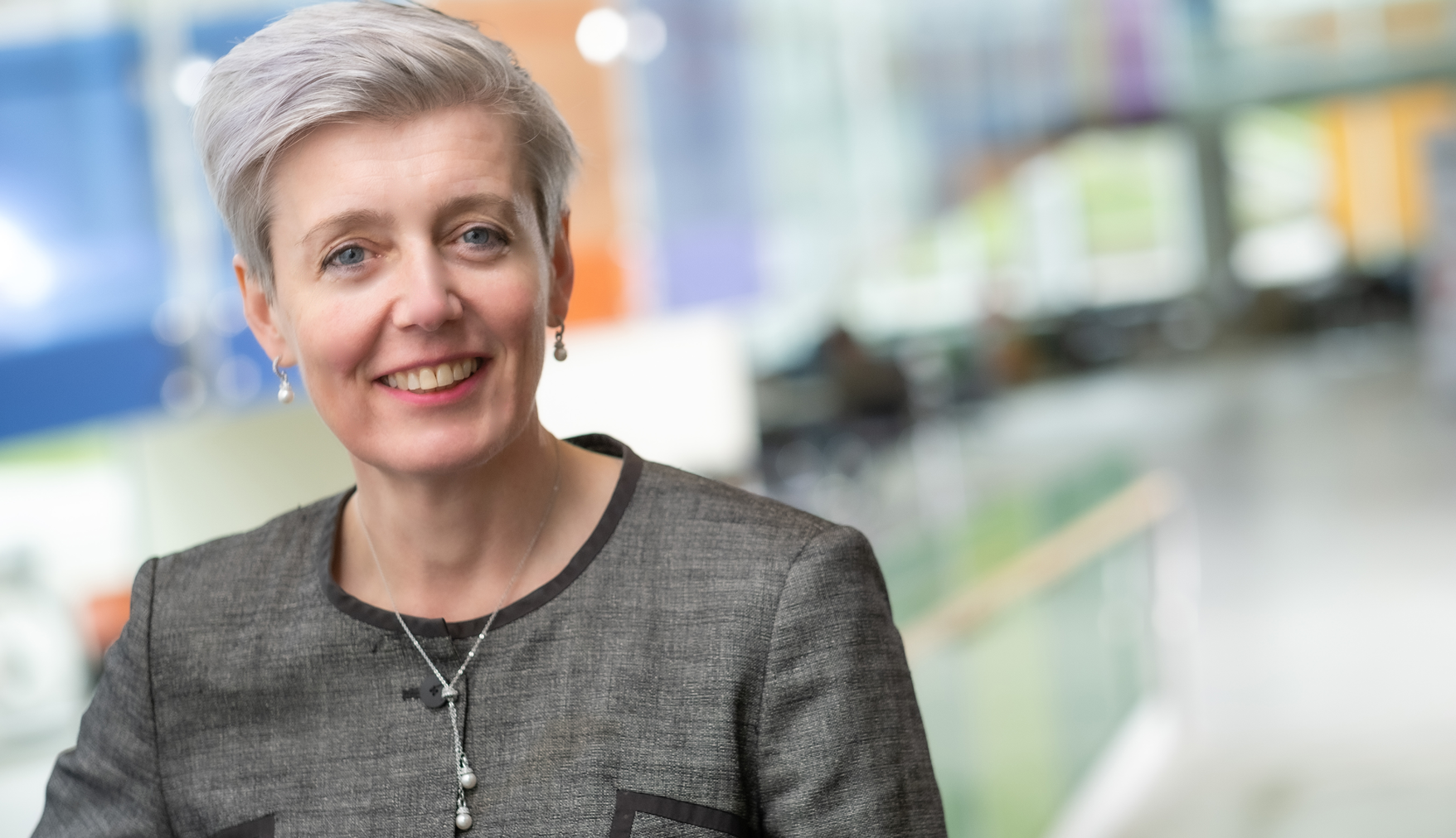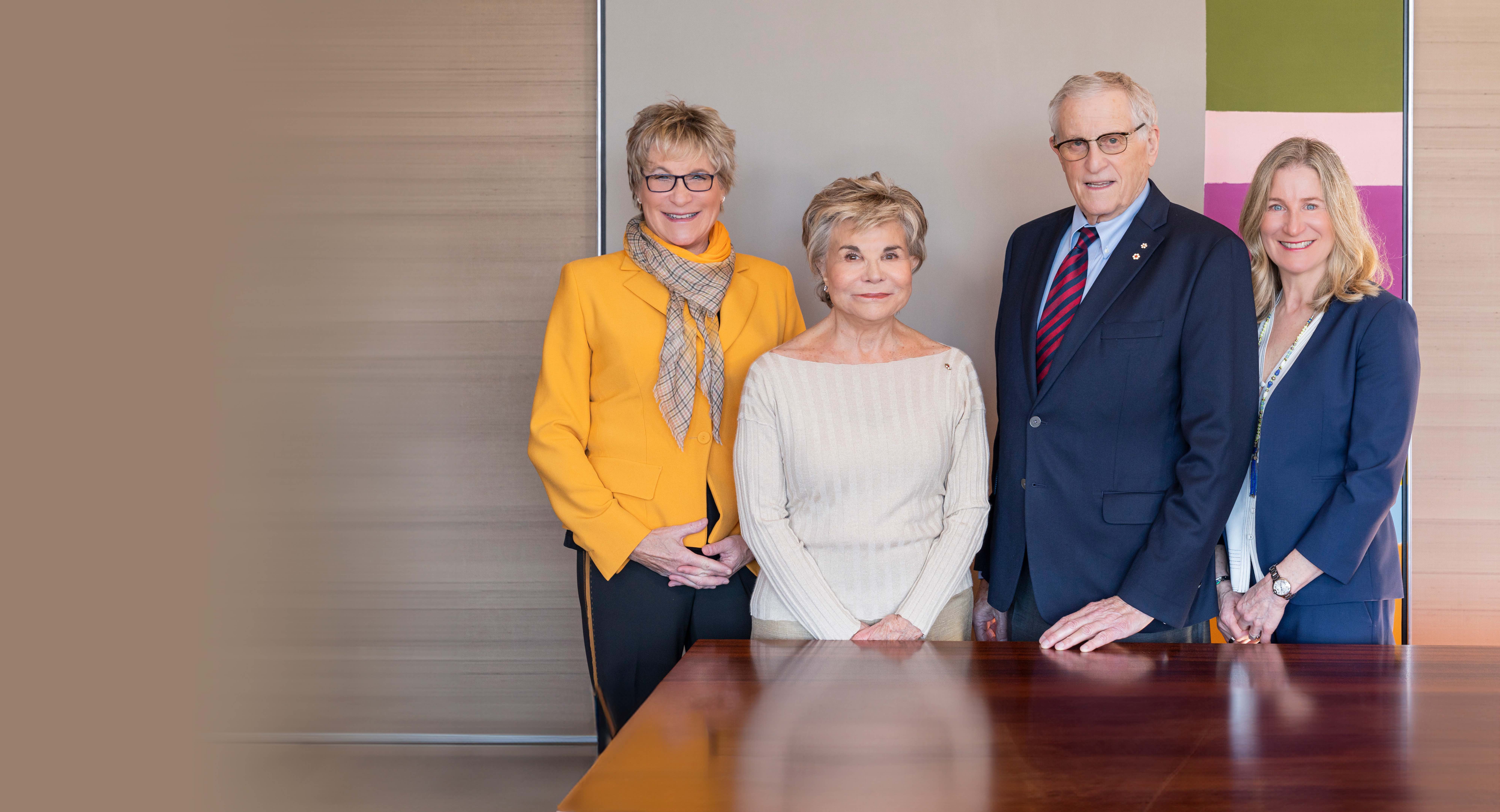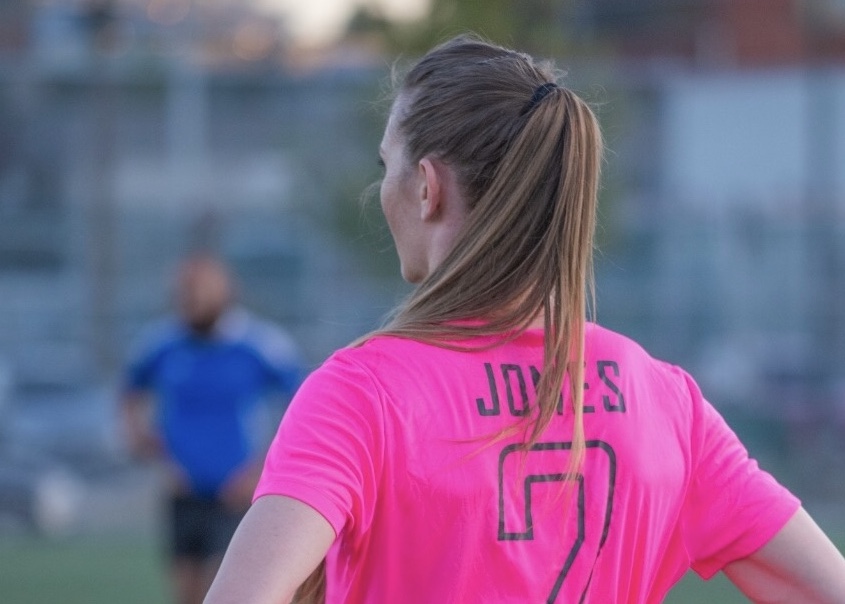
Angela Chapman became President & CEO of VGH & UBC Hospital Foundation on January 1, 2020.
She was soon faced with the same challenge as CEOs across the globe – leading during an unprecedented pandemic. The pandemic put the Foundation at the heart of a community response to support frontline health care workers. It was an opportunity to inspire generous donations that galvanized our community’s resolve to defend against the virus, and fuel the advancement of medical research that will lead to defeating it.
A personal debt to health care
Angela was born and raised in Vancouver. She was diagnosed in the womb with Rhesus Hemolytic Disease, a condition where antibodies in the mother’s blood destroy the baby’s blood cells. Before a cure for this was found, the disease could cause brain damage, deafness or death to the baby. “In a very real sense, I owe my life to being born in a city and province that has world-leading health care.
“It certainly feels like karma,” Angela says about returning to her native Vancouver to take a role with VGH & UBC Hospital Foundation after more than two decades in higher education philanthropy.
While studying at McGill University, she funded her studies by working for the Alumni office, which was her first foray into fundraising. After studying abroad in Russia and France, Angela successfully applied to medical school in Montreal. In balancing the priorities of a young family, she chose instead to pursue an MBA at Laval University in Quebec City. Those business studies gave her newfound insights into fundraising, which she put to use when she returned to McGill.
The impacts of giving
Angela spent more than two decades inspiring philanthropy to higher education in Canada, Australia and Singapore. Her passion has been fueled by the incredible teachers and researchers that she has worked alongside. She recognizes the opportunities and experiences that education had afforded her personally, and acknowledges “Institutions of higher learning have played such a key role in advancing Canada and our global society, and I was inspired for so many years to play an enabling role in that.”
These experiences gave Angela a first-hand view of the ability for philanthropy to advance society and individuals. Relatively modest investments in new programs or promising young students can have outsized results years later. This has helped form her philosophy on the differences between charity and philanthropy.
“Charity is really necessary to hold our community together,” she explains. “Both charity and philanthropy are acts of love of humanity. But to me the distinction in practice is this: charity means taking care of the immediate needs of our fellow human beings. Philanthropy goes beyond solving the immediate, to understand and fix the root problem.”
“The difference is like this: you’re standing beside a stream, and you see a child float by. You have to act now to get the drowning child out of the water, so you jump in. But as two, three, four children are falling in, you have a problem. You can’t save them all alone and the problem is going to keep happening until you go upstream and discover that a fence needs to be built to stop children from falling in the river. Charity is jumping in the water and pulling children out, and the philanthropy is going up the stream and building that fence. In health care and medicine, our Foundation plays a role in charity and philanthropy.”
From ventilators to adaptive equipment, there are always more needs than funds in our health care system, and donor support provides funding for this type of urgently needed equipment to improve patient care.
“At the same time, we partner with physicians and other health care professionals who have big ideas – research projects that need donor support to get off the ground, that have the potential to prevent illness or improve treatment in the future, ultimately having an outsized and transformational impact on our health care system,” says Angela.
Typically, the majority of Foundation support goes towards the latter. But COVID-19 would swiftly highlight just how necessary both kind of donations are.
Adapting to COVID
As COVID-19 cases began to rise in BC, Foundation staff found themselves fielding entirely new types of offers of donor support.
“We started to look a lot more like a disaster relief organization,” explains Angela, “We were suddenly getting flooded with calls of people who wanted to bring PPE to the hospital or deliver food to health care workers. There was a great outpouring of support for health care, and that was absolutely wonderful.
“We helped facilitate some of these offers while Vancouver Coastal Health (VCH) developed their own operation. Our goal was really to raise awareness, to raise money, to support the needs of our hospitals and health care centres. New equipment, supplies, all sorts of support for health care workers.”
The launch of COVID-19 Response and Research funds raised over $2 million and counting. Our donors provided urgently needed items and other support that would have been nearly impossible to realistically plan for in advance.
At the same time, previously funded projects were already having an impact.
In 2019, VGH launched a virtual interpreter service. It was funded by a legacy gift made by an Italian immigrant, and it provided live translation right at patients’ bedsides using rolling Ipad systems. When COVID hit and visits were reduced, staff were able to adapt to use these to connect patients and loved ones.
“The Vancouver Prostate Centre had been using an artificial intelligence to develop therapeutic drugs for prostate and other cancers,” says Angela. “And that was mobilized for reducing the number of therapeutic candidates for attacking COVID-19. We were able to support this and other local research thanks to donor funding.”
Looking to the future
Like many leaders, Angela has overseen multiple changes and pivot points over the last year.
“It’s been a remarkable year,” says Angela. “I’m so happy to work with a team that has embraced the adversity. We’re not through it yet, and we have challenges, but this has given us a lot of opportunity to do things differently.
“I remember in the first few weeks of this in March every week was so intense and so much happened that each week felt like a month. And yet when you see where we’ve come, nearly a year later, it’s quite remarkable. It’s unprecedented in human history that we have developed a response so quickly to something so crippling on a global scale, it really speaks to the power of medical research.”
As she looks to lead VGH & UBC Hospital Foundation into 2021 and beyond, Angela sees more opportunities for philanthropy to continue to have an incredible impact.
“We are living in a period of intense rapid change,” says Angela. “But we are a strong foundation and we have the skills and passion to move ahead into a brighter future than ever before.”
Hear more from Angela Chapman on the Nicola Wealth podcast

